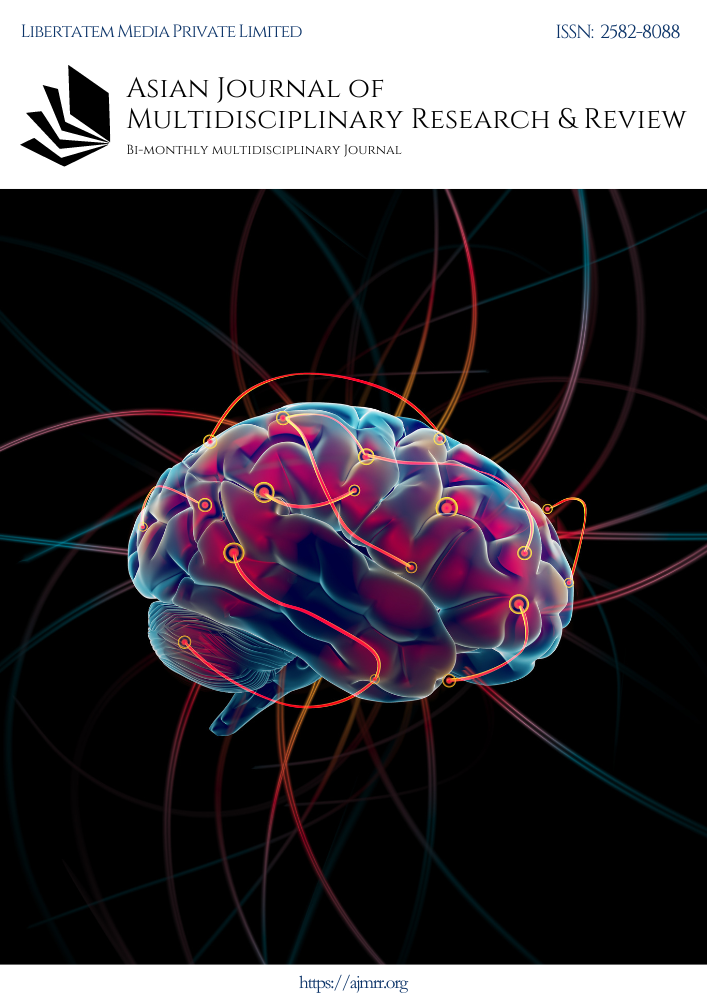POLITICAL & CULTURAL SYNTHESIS: A NEW PARADIGM OF SOUTHEAST ASIA
Keywords:
Religion and Art, Cultural SynthesisAbstract
According to Croissant & Lorenz, Southeast Asia as a region is an extraordinarily diverse collection of states, which vary widely in history, demographics, culture, economy, political systems, and the political challenges they face. Geographically, Southeast Asia is divided into an insular or maritime region, comprising Brunei, Indonesia, parts of Malaysia, the Philippines, and Timor-Leste, and a mainland or continental part, including Burma, Cambodia, Laos, the Malay Peninsula, and Vietnam (Croissant & Lorenz, 2018). Political and cultural synthesis can be seen in the way that Southeast Asian states have adapted to various external influences and internal challenges over time. Political and cultural synthesis can also be seen in the way that Southeast Asian societies have developed their forms of nationalism, identity, and civil society that reflect their diverse ethnic, religious, and linguistic backgrounds. The paper argues that political and cultural synthesis is a key feature and process of Southeast Asia, which is the result of the historical interactions and influences among different religions, cultures, and regions within and outside Asia. The paper analyzes various examples of cultural synthesis in Southeast Asian literature and cinema, and how they reflect and contribute to the diversity and complexity of the region. The text argues that this is a key feature and process of Southeast Asia, which is the result of the historical interactions and influences among different religions, cultures, and regions within and outside Asia. The text analyzes various examples of cultural synthesis in Southeast Asian literature and cinema, and how they reflect and contribute to the diversity and complexity of the region. Southeast Asia is divided into an insular or maritime region, comprising Brunei, Indonesia, parts of Malaysia, the Philippines, and Timor-Leste, and a mainland or continental part, including Burma, Cambodia, Laos, the Malay Peninsula, and Vietnam.
Downloads
Downloads
Published
Issue
Section
License

This work is licensed under a Creative Commons Attribution-NonCommercial-ShareAlike 4.0 International License.
License Terms
Ownership and Licensing:
Authors of research papers submitted to the Asian Journal of Multidisciplinary Research & Review (AJMRR) retain the copyright of their work while granting the journal certain rights. Authors maintain ownership of the copyright and grant the journal a right of first publication. Simultaneously, authors agree to license their research papers under the Creative Commons Attribution-ShareAlike 4.0 International (CC BY-SA 4.0) License.
License Permissions:
Under the CC BY-SA 4.0 License, others are permitted to share and adapt the work, even for commercial purposes, as long as proper attribution is given to the authors and acknowledgment is made of the initial publication in the Asian Journal of Multidisciplinary Research & Review. This license allows for the broad dissemination and utilization of research papers.
Additional Distribution Arrangements:
Authors are free to enter into separate contractual arrangements for the non-exclusive distribution of the journal's published version of the work (e.g., posting it to institutional repositories or publishing it in books), provided they acknowledge the initial publication of the work in the Asian Journal of Multidisciplinary Research & Review.
Online Posting:
Authors are encouraged to share their work online (e.g., in institutional repositories or on personal websites) both prior to and during the submission process to the journal. This practice can lead to productive exchanges and greater citation of published work.
Responsibility and Liability:
Authors are responsible for ensuring that their research papers do not infringe upon the copyright, privacy, or other rights of any third party. The Asian Journal of Multidisciplinary Research & Review disclaims any liability or responsibility for any copyright infringement or violation of third-party rights in the research papers.



